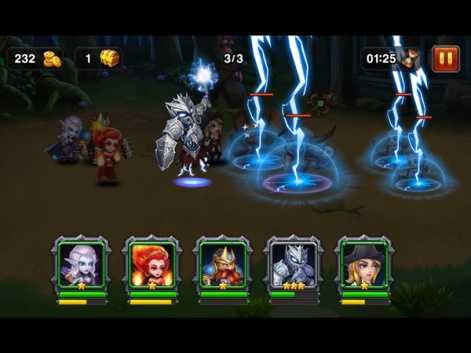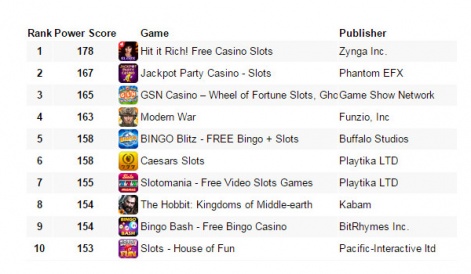Previously CTO of Bossa Studios, Ric Moore is now the CCO of a new London-base mobile games studio called The Secret Police.
Recent months have seen him turn his hand to data mining analytics in game design, an issue he'll be discussing in his address at the F2P: Summit on 26 March.
Analytics have fast become vital in the free-to-play stakes, and Moore has built a system that harvests data from the App Store to extract information on how well games in the app store retain and monetise players.
Using the data, Moore claims he can uncover the "hidden winners" of the stores, identifying games with the best earning power. We caught up with him to find out just how important data is to succeeding in the F2P arena.
Pocket Gamer: What do you mean when you say “hidden winners” and “whales?”
Ric Moore: I spend a lot of time on App Annie and noticed certain games have a much higher grossing rank than download rank.
I also realised if the download rank drops and the grossing rank remains steady, that's a way to gauge how well the game retains and monetises players; the longer the grossing rank holds steady, the better its retention/monetisation.
The 'hidden winners' are these games, and they tend to be lower down the grossing charts.
You can have a glimpse of the chart here.
Whales are large marine mammals... they are also the big spending players in F2P games.
What does your data mining system do and how does it work?
It's a suite of tools that allows you visualize what's going on in the App Store in a completely different way and in real time.

Charting the hidden winners is just one aspect. It covers different counties and all the games categories. Other interesting things are:
- Momentum - which games are climbing the charts
- Stickiness - how long do they stay in the charts
- Soft launch - which games are in soft launch? Who are the ones to watch?
- New genres - why isn't there are match-3 category in the App Store? Isn't it better to categorise games by keywords?
I built it because I had some questions I wanted answering and I realised that this kind of biz intel just isn't available elsewhere. The findings are useful to us as a mobile free-to-play studio as it has helped guide our direction.
The majority of all games will never break even regardless which business model they use.Ric Moore
I think they are probably just as useful, if not more so, to ad networks, investors, marketing companies, analytics and other B2B services in this sector.
It's not a commercial service as such but I'd keen to hear from anyone who might be interested in it.
Are there any misconceptions about using data in F2P?
I'm not sure if there's misconceptions. Don't assume data mining will to tell you how to design your game.
It's useful for making better informed business decisions. It helps de-risk what is otherwise a very risky business, and can give you a competitive edge.
How highly should studios prioritise data mining?
Gathering analytics on your game after you launch is essential, that's one form of data mining you should prioritise. The kind of data mining I've been doing is looking outwards at the market as a whole.
It's been extremely useful to us. It doesn't really fall under game development though, it's more like market intelligence. It could be a separate business in its own right.
What sorts of games do the best in F2P?
You just have to look at the top grossing chart: Clash of Clans, Candy Crush, Game of War, etc.

However, the genres that make the most money per install are slots and Japanese-style role playing games.
What shouldn’t you do if you want to succeed in F2P?
Don't cap spending! I recall a certain iPad MOBA that came out allowed you to unlock all the characters for $20.
If they had a conversion rate of 4 per cent (which is considered good) and all that 4 per cent spent the max $20 (which is unlikely), they'd make $0.80 per player.
A typical install costs over $1. They had to rely exclusively on being featured by Apple and word-of-mouth to get installs. Their business model meant they were screwed before they started.
Why should developers choose F2P as a business model?
If you look at the top 100 grossing games roughly 3 are premium, the rest are free. So if your goal is to be in that chart then F2P seems the logical choice.
That said, Monument Valley, The Room, Five Nights at Freddy's all do well and they're not F2P.
The majority of all games will never break even regardless which business model they use. I think is best to just make the kind of games you want to make and hope it works out.
You can find out more details about the F2P Summit 2015 here.





















